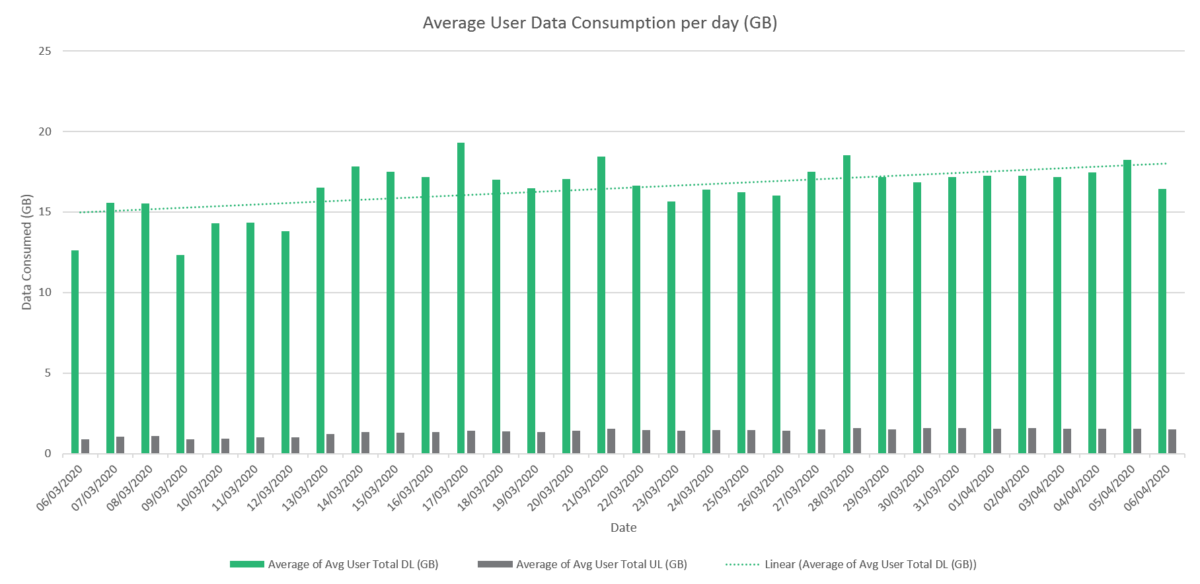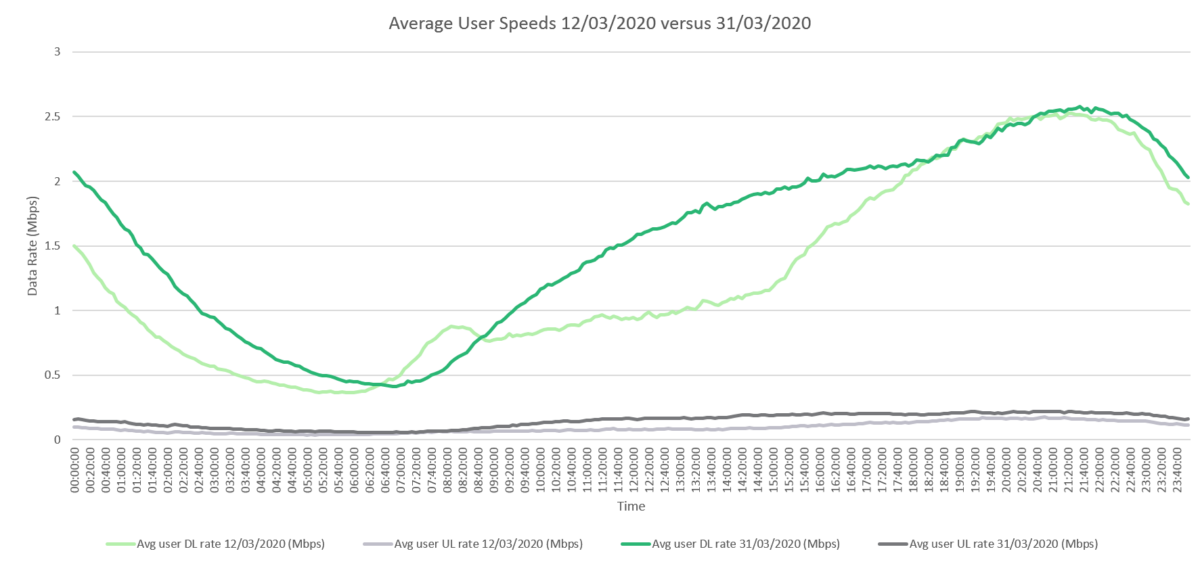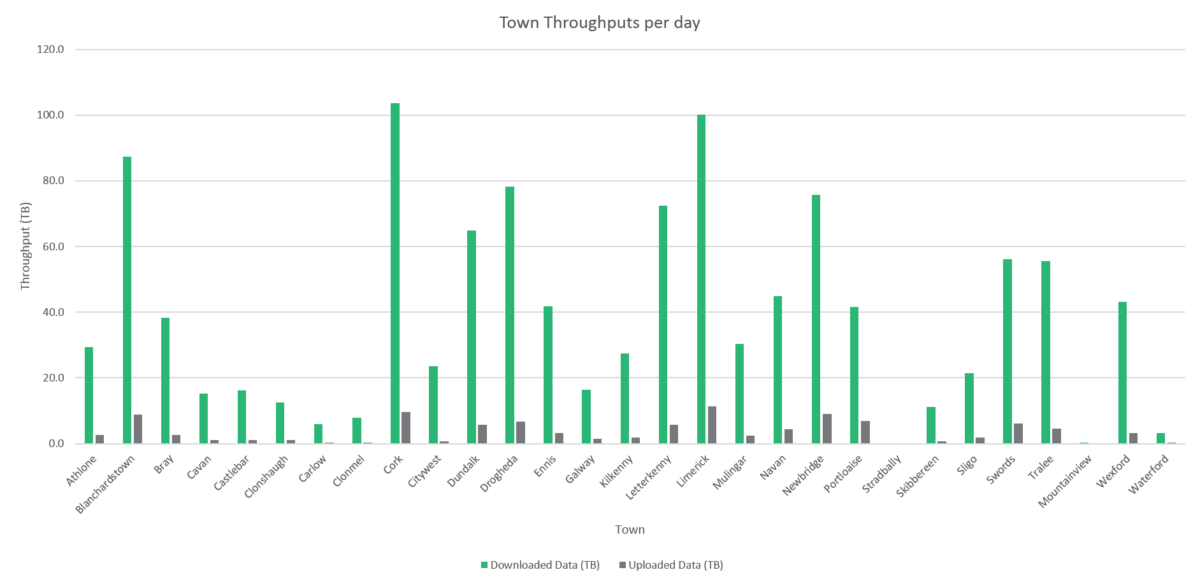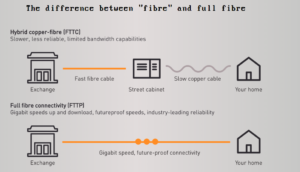
Today is
Gimme Fibre Day, a day that celebrates Nobel Prize winner Sir Charles Kuen Kao, whose work on transmitting light through fibres revolutionised communications. This day, Kao’s birthday, is a day to acknowledge both his achievements and the benefits his work on optical fibre bring to the world.
More than 95% of global digital data is carried by fibre optic cables and this technology touches every aspect of our lives, from facilitating communication with loved ones to enabling smart homes, smart cities and smart working.
Many of today’s most complex problems necessitate the contribution of equally complex ICT solutions, which in turn depend on Very High Capacity Networks (VHCN) to transfer data at scale and at speed. One such problem is climate change. The challenge of reducing harmful emissions and adapting to an uncertain future climate will require enormous change, much of it technical, in every sector of the economy. A recent paper published by UK wholesale fibre network operator
City Fibre pointed to the need for VHCNs to underpin ICT carbon reduction solutions across sectors such as energy, eHealth, transport, smart buildings and cloud computing. Without a high-speed, high-quality with low latency and resilient broadband network, these solutions will be difficult to adopt widely.
At SIRO, we see building a future-proofed 100% fibre optic network as an important enabler for the transition to a sustainable economy. Our network currently reaches 275,000 homes and businesses across regional Ireland, with 50,000 customers and growing. FTTH networks themselves are more energy efficient than other access networks and research has shown that per gigabit, widespread adoption of FTTH infrastructure could be responsible for 88% fewer emissions in European countries than the alternatives.
Public concern over climate change is growing. According to the Eurobarometer (2019),
75% of Irish people see it as a ‘very serious’ problem, up from 68% in 2017. While they see Government (48%), the EU (45%), business (39%) and themselves (43%) as being relatively equally responsible for tackling climate change, 62% of Irish respondents say they have personally taken action “to fight climate change over the past six months”. Proposals relating to specific Government actions, e.g. financial supports for clean energy transition and national renewable energy targets are heavily supported by Irish respondents (93% and 95% respectively).
These results show that on the whole, Irish people are willing to make personal changes in behaviour to tackle climate change but they also see a need for these changes to be supported by Government action. However, business and industry also bear a huge responsibility, not only to decrease their own carbon footprint, but to empower the public, including their employees, to take their own actions on climate change.
FTTH – empowering people to make change
Building a future-proofed 100% fibre-optic broadband network will help Irish people to make the changes they want to make in their own lives and work to help fight climate change. For the individual, there is potential to reduce transport emissions, in particular through facilitating remote working. A quantitative analysis using a lifecycle approach conducted by PwC for the FTTH Council North America found that within 6 years of its deployment, a typical FTTH network in the US will have a positive impact on the environment mainly due to the benefits of remote working.[1]
As a company we believe that we should also empower our employees to make similar changes, and facilitate remote working where possible. At SIRO we have a mixture of office-based and field-based staff and while the options to work remotely are dependent on business needs, we aim to allow all those who desire it and whose role allows it, to work from home or a remote office/site. We are building our fibre network in towns in regional Ireland, so while our head office is in Carrickmines Dublin, many of our employees are based in towns across the country from Letterkenny to Tralee, to Galway and Dundalk.
To get an idea of the prevalence and the appetite for remote working in SIRO and the carbon savings we could make by spending one day a week working from home, we recently surveyed the staff.
We found that that SIRO staff respondents travel an average of 58km daily to their place of work. Those who travel by car travel an average of 62km daily to their place of work.[2] In keeping with the profile of the company, many SIRO employees live outside of Dublin, commuting to the office in Carrickmines from towns and cities such as Roscommon and Cork. Given the location of the office and the distribution of our build sites, it is unsurprising how far the average SIRO employee travels to get to work. Also reflecting our head office location and build sites, 87% of SIRO staff travel to work by private car or company van, with 8% taking public transport and 3% travelling by car share, 2% use other modes such as walking or motorcycle.
The company already incentivises use of public transport through the Government Taxsaver scheme, other options to decrease emissions from travel to work are car sharing and remote working. When asked whether they would be open to car sharing, only 30% of respondents indicated they were and only 3% of people currently car share regularly.
Remote working, on the other hand, is more popular, 63% of respondents reported working from home/remotely during the week. Of those that do not work remotely/from home [3], 60% of them said that they would like to.
Aside from the other benefits of working from home, (e.g. better work-life balance), the emissions reductions can be significant.
The Government’s Climate Action Plan estimates that every new remote worker will yield a net energy saving of 10kWh per day. In the UK, it has been estimated that the nationwide availability of faster broadband could save 1.6 million tonnes of CO
2 emissions per annum due to remote working and a reduction in work travel alone.[4]
The Benefits of Remote Working on CO2 Emissions
From our survey, we calculated that on average
a SIRO employee working from home one day a week for a year would save 724 kg CO2, or 0.72 tonnes CO2 emissions each, or
approximately 5% of an Irish person’s emissions per annum (13.3 tonnes per capita 2017)
Not everyone who wishes to work remotely wishes to work from home. An option many found attractive was working from a digital/co-working hub. If it was available, 26% would work from a hub occasionally and 38% would work from a hub frequently/very frequently. Through a partnership with Vodafone, SIRO sponsors 15 Gigabit hubs in regional towns around the country, giving them access to two year’s free 1 Gigabit connection. Recent
research by Vodafone found that Gigabit hubs make a substantial economic contribution to the towns they are based in and it estimated that 5,200 jobs could be supported.
[12] That’s 5,200 people who can avoid a lengthy commute. By giving people who live in regional towns the option to work in a local Gigabit hub rather than commute to the nearest city most likely by car, they are also empowering people to reduce their carbon emissions.
Dr Kao would no doubt be pleased with the significant efforts going on across Europe to “Switch Off” Copper networks and replace them with Very High Capacity (VHCN) Fibre networks, both in the backhaul trunk networks and the local last mile access networks. Greater adoption of this infrastructure he pioneered has the dual benefit of driving the EU Digital Agenda and competitiveness and also contributing to the decarbonising of industry and transportation. Happy birthday Sir Charles from SIRO.
[1] PwC (2008), ‘Developing a Generic Approach for FTTH Solutions using Life Cycle Analysis Methodology to Determine Environmental Benefits of FTTH Deployments in the USA’.
[2] Response rate of 58%
[3] 37% do not currently work from home/remotely
[4] SQW (2013),
UK Broadband Impact Study. Found in WIK Consult (2018),
The Benefits of Ultrafast Broadband
 With people doing most of their activities online, it comes as no surprise that consumption patterns have changed since 13 March. The graphs below outlines the pattern of data demand before and during lockdown: the biggest increase can be seen during the morning hours well into the afternoon compared to the pre-lockdown period.
With people doing most of their activities online, it comes as no surprise that consumption patterns have changed since 13 March. The graphs below outlines the pattern of data demand before and during lockdown: the biggest increase can be seen during the morning hours well into the afternoon compared to the pre-lockdown period.
 Data consumption also varies by tows. The busiest towns on the SIRO network are Cork, Limerick and Blanchardstown, followed by Drogheda and Newbridge.
Data consumption also varies by tows. The busiest towns on the SIRO network are Cork, Limerick and Blanchardstown, followed by Drogheda and Newbridge.
 In a nutshell, life has changed significantly for all of us over the past month, and as an organisation we have had to adjust given the ongoing developments of COVID-19. Despite all these changes, we can assure you that one thing remains constant: the essential connectivity SIRO provides will continue to stay strong and stay in place, so we can play our part in keeping the people of Ireland connected throughout this difficult time.
In a nutshell, life has changed significantly for all of us over the past month, and as an organisation we have had to adjust given the ongoing developments of COVID-19. Despite all these changes, we can assure you that one thing remains constant: the essential connectivity SIRO provides will continue to stay strong and stay in place, so we can play our part in keeping the people of Ireland connected throughout this difficult time. 

 Source:
Source:  Today is Gimme Fibre Day, a day that celebrates Nobel Prize winner Sir Charles Kuen Kao, whose work on transmitting light through fibres revolutionised communications. This day, Kao’s birthday, is a day to acknowledge both his achievements and the benefits his work on optical fibre bring to the world.
Today is Gimme Fibre Day, a day that celebrates Nobel Prize winner Sir Charles Kuen Kao, whose work on transmitting light through fibres revolutionised communications. This day, Kao’s birthday, is a day to acknowledge both his achievements and the benefits his work on optical fibre bring to the world.